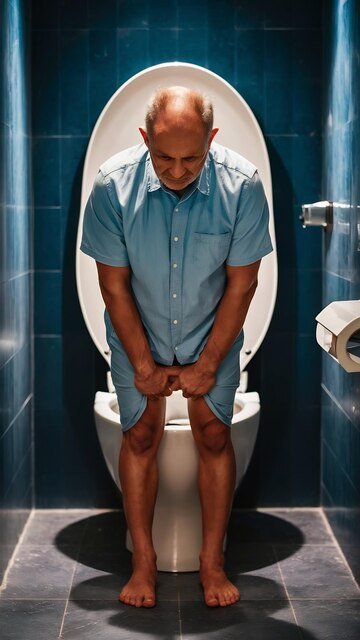Urology, a medical specialty focusing on the urinary tract and male reproductive system, is often surrounded by misconceptions. One persistent myth is that frequent nighttime trips to the bathroom are a natural and unavoidable part of aging for men. While aging does influence certain aspects of urinary health, frequent nocturnal urination—called nocturia—is not an inevitable outcome of growing older. Instead, it often indicates underlying conditions that can and should be addressed.
Understanding Nocturia
Nocturia is defined as waking up more than once during the night to urinate. It disrupts sleep and can significantly impact an individual’s quality of life, leading to fatigue, irritability, and even long-term health risks if left untreated.
While it’s true that aging can affect bladder function due to reduced elasticity and decreased bladder capacity, nocturia is not solely a product of aging. Many other factors, both physiological and medical, contribute to this condition.
What Causes Frequent Nighttime Urination?
- Enlarged Prostate (BPH):
Benign prostatic hyperplasia (BPH) is common in older men. An enlarged prostate can press against the urethra, making it difficult to empty the bladder completely, leading to frequent urination. - Lifestyle Factors:
Excessive fluid intake before bedtime, especially alcohol or caffeine, can contribute to nocturia. - Medical Conditions:
- Diabetes: High blood sugar levels can increase urine production.
- Heart or Kidney Conditions: These can cause fluid retention during the day, which the body eliminates at night.
- Sleep Disorders: Conditions like sleep apnea can trigger nighttime urination.
- Bladder Conditions:
Overactive bladder syndrome or urinary tract infections (UTIs) can irritate the bladder, causing frequent urges to urinate.
Why It’s Important to Address Nocturia
Ignoring nocturia can lead to more than just sleepless nights. Chronic sleep disruption can affect physical and mental health, increasing the risk of hypertension, heart disease, and depression. Identifying and treating the root cause of nocturia can significantly improve overall well-being.
Common Myths About Nighttime Urination and Aging
- Myth: “Waking up at night to urinate is normal for all older men.”
- Fact: While mild changes in urinary habits may occur with age, waking up multiple times per night is often a sign of an underlying issue.
- Myth: “It’s just something you have to live with as you age.”
- Fact: Treatments, ranging from lifestyle adjustments to medications or minimally invasive procedures, can address nocturia effectively.
- Myth: “Cutting down on fluids will solve the problem.”
- Fact: While reducing evening fluid intake can help, it won’t address medical conditions causing nocturia.
Steps to Take if You Experience Nocturia
- Keep a Diary: Track fluid intake, urination frequency, and any other symptoms.
- Consult a Urologist: A specialist can identify the underlying cause and recommend treatment.
- Consider Lifestyle Changes: Reduce caffeine and alcohol consumption, manage fluid intake, and maintain a healthy weight.
- Follow Treatment Plans: If the cause is medical, such as BPH or diabetes, adhere to prescribed medications or therapies.
Conclusion
Frequent nighttime urination is not a normal or unavoidable part of aging. If you’re experiencing nocturia, it’s essential to recognize it as a sign that warrants attention, not dismissal. A proactive approach, supported by medical guidance, can help you regain control over your nights and improve your overall quality of life.
Don’t let myths about aging stop you from seeking the care you need—consult a urologist to ensure that your urinary health supports your active, fulfilling lifestyle at any age.

